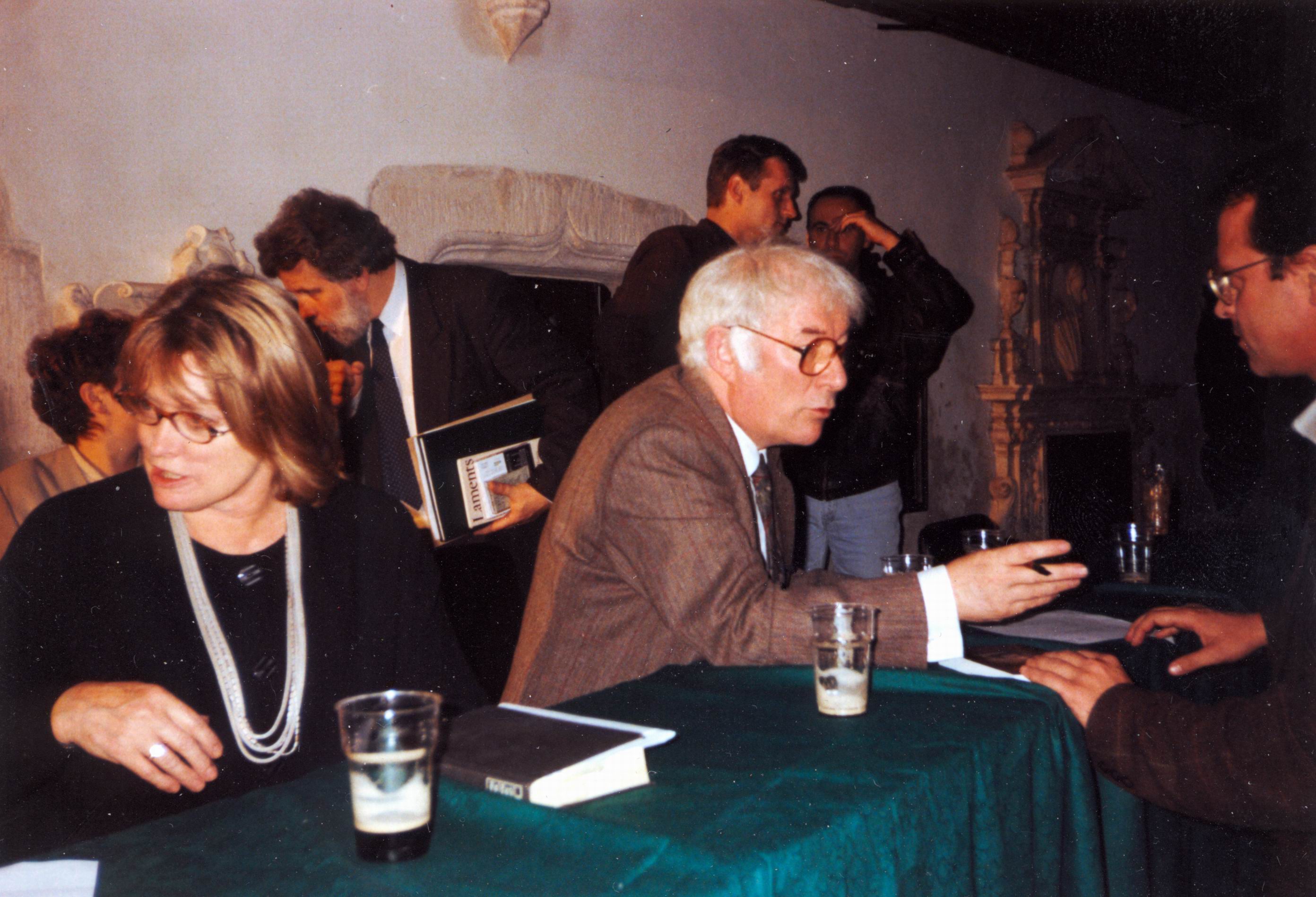It is difficult at times to repress the thought that history is about as instructive as an abattoir; that Tacitus was right and that peace is merely the desolation left behind after the decisive operations of merciless power.

"Seamus Justin Heaney", Royal Irish Academy/MRIA was an Irish people/Irish poet, playwright, translator and lecturer, and the recipient of the 1995 Nobel Prize in Literature. In the early 1960s, he became a lecturer in Belfast after attending university there and began to publish poetry. He lived in Sandymount, Dublin, from 1976 until his death.
Heaney was a professor at Harvard University/Harvard from 1981 to 1997 and its Poet in Residence from 1988 to 2006. From 1989 to 1994 he was also the Oxford Professor of Poetry/Professor of Poetry at University of Oxford/Oxford and in 1996 was made a Commandeur de l'Ordre des Arts et des Lettres/Ordre des Arts et Lettres. Other awards that he received include the Geoffrey Faber Memorial Prize (1968), the E. M. Forster Award (1975), the PEN Translation Prize (1985), the Golden Wreath of Struga Poetry Evenings/Golden Wreath of Poetry (2001), T. S. Eliot Prize (2006) and two Costa Book Awards/Whitbread Prizes (1996 and 1999). In 2012, he was awarded the Lifetime Recognition Award from the Griffin Poetry Prize/Griffin Trust For Excellence In Poetry. His literary papers are held by the National Library of Ireland.
If you enjoy these quotes, be sure to check out other famous poets! More Seamus Heaney on Wikipedia.But the thing uttered by the speaker I strain towards is still not quite the story of what is going on; it is more reflexive than that, because as a poet I am in fact straining towards a strain, seeking repose in the stability conferred by a musically satisfying order of sounds.
Don't be surprised if I demur, for, be advised my passport's green. No glass of ours was ever raised to toast The Queen.
I may have grown more attentive to the news and more alive to the world history and world-sorrow behind it.
As writers and readers, as sinners and citizens, our realism and our aesthetic sense make us wary of crediting the positive note.
Even if the hopes you started out with are dashed, hope has to be maintained.
The next move is always the test.
But that citizen's perception was also at one with the truth in recognizing that the very brutality of the means by which the IRA were pursuing change was destructive of the trust upon which new possibilities would have to be based.
No place in the world prides itself more on its vigilance and realism, no place considers itself more qualified to censure any flourish of rhetoric or extravagance of aspiration.
Copyright © 2024 Electric Goat Media. All Rights Reserved.